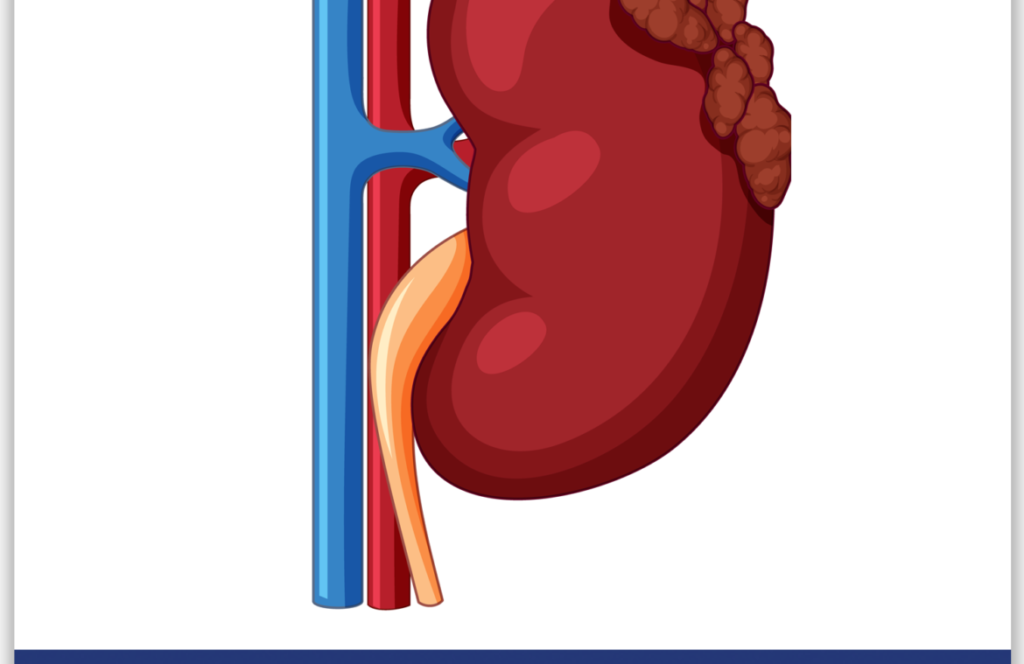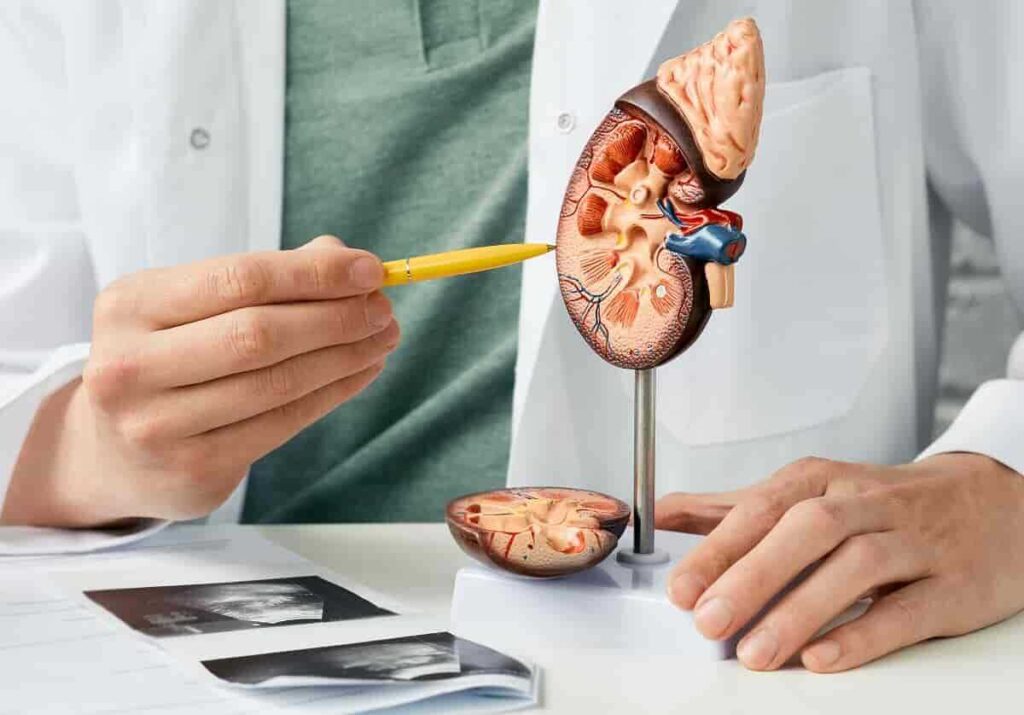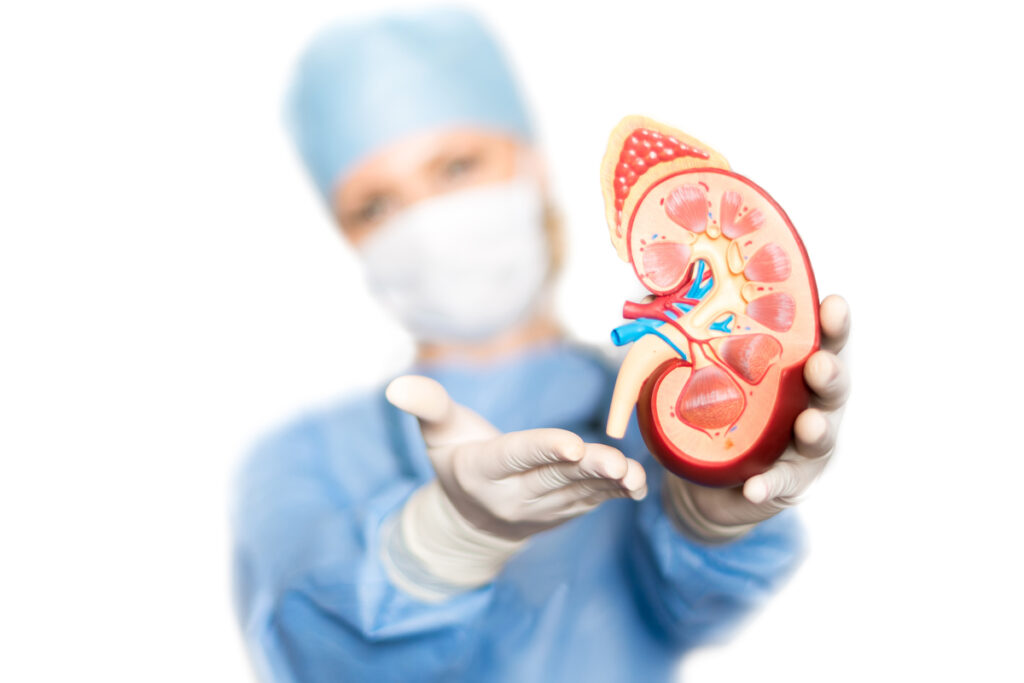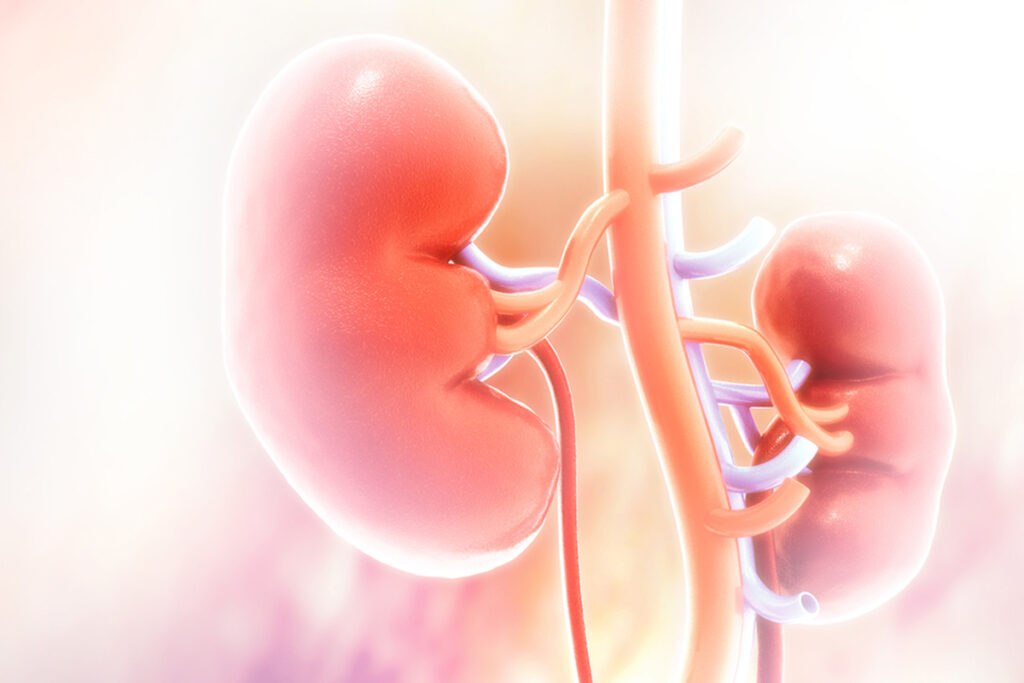
Kidney Cancer
Kidneys, which are among the most important organs of our body, perform the functions of filtering the blood, producing urine from waste materials, and maintaining the balance of minerals in the blood. kidney cancerIt occurs as a result of cells that perform their normal functions losing their functions for various reasons.
The proliferation of cancer cells creates masses in the kidneys and prevents the kidney from performing its normal function. Although the exact cause of kidney cancer is not known exactly, the disease may not show any symptoms in the early stages. For this reason, regular screenings and examinations should be performed.

What are the Symptoms of Kidney Cancer?
The disease has no obvious and disturbing symptoms in the early stages. In kidney cancer, which progresses insidiously, various symptoms occur due to the growth of the kidney tumor. The most common symptoms of kidney cancer are blood in the urine, the formation of a mass in the kidney area, and severe pain, especially in the waist area. Less common symptoms of the disease can be listed as follows;
- Tiredness,
- Loss of appetite,
- weight loss,
- blood in urine,
- Anemia,
- flank pain,
- bloating in the abdomen,
- High fever,
- Symptoms such as high blood pressure kidney cancer symptoms It is located between.

TNM Staging
The TNM staging system is used when determining cancer staging. TNM staging system; It is a system in which the stage of cancer is determined according to the answers to three questions.
T (Tumor) – Tumor: How large is the tumor mass and where is its location?
N (Node) – Node: Has the tumor spread to the lymph nodes? If so, how many and where?
M (Metastasis) – Metastasis: To which organs in the body have cancer cells spread and to what extent?
Tumor – (T)
T1: The cancer mass is only in the kidney. Its maximum size is 7 cm.
- T1a: The cancer mass in the kidney is 4 cm or smaller at its widest.
- T1b: The cancer mass in the kidney is between 4 cm and 7 cm wide.
T2: Cancer is only in the kidney. Its widest area is larger than 7 cm.
- T2a: The widest area of cancer in the kidney is between 7 cm and 10 cm.
- T2b: The largest area of kidney cancer is larger than 10 cm.
T3: Cancer has reached the connective tissue around the kidney. The tumor has not gone beyond Gerota's fascia (a tissue envelope surrounding the kidney).
- T3a: The cancer mass has spread outside the kidney. It has spread to the large vein we call the renal vein.
- T3b: The cancer mass has spread outside the kidney. The mass has reached the veins leading to the heart.
- T3c: The cancer mass has spread outside the kidney. The mass has reached the right atrium of the heart.
T4: Cancer has spread to areas beyond Gerota's fascia.
Node – N
- N0: Cancer has not spread to regional lymph nodes.
- N1: Cancer has spread to regional lymph nodes.
Metastasis – M
- M0: The cancer mass has not metastasized.
- M1: The cancer mass has spread to other parts of the body.
All these T, N and M classifications are interpreted and combined to determine the stage of the cancer.

Kidney Cancer Stages
During the staging period, which is an important part of determining the extent of cancer and diagnosing the process, the most appropriate treatment method for the patient is determined. Kidney cancer stages, which are carried out in four stages, progress from the least severe stage to the most severe stage.
kidney cancer In the first stage of the disease, the tumor is found only in the kidney and is small in size. The disease has not yet spread to other organs. In the second stage, the tumor is larger than 7 cm and is located only in the kidney. It has not spread to other organs.
In the third stage of kidney cancer, the tumor has spread to surrounding tissues outside the kidney. In the fourth stage, the tumor has compressed the kidneys and adrenal glands and extended to the adrenal gland. The cancer has also spread to bones and distant parts of the body, such as the liver and lungs.
In order to understand the stage of cancer, it is first necessary to detect it. Afterwards, the determination of survival depends on the type of cancer, its stage and metastasis status. Cancerous cells; It can spread to organs such as lungs, bones and brain. This situation is called metastasis.
- Stage I: The mass is 7 cm or smaller. It is found only in the kidney, there is no spread to lymph nodes or other organs.
- Stage II: The mass is larger than 7 cm. It is found only in the kidney and has not spread to lymph nodes or other organs.
- Stage III: The tumor is only in the kidney. There is spread to regional lymph nodes, but there is no metastasis to other organs.
- Stage IV: The cancer mass has spread to areas beyond Gerota's fascia. It may have reached nearby lymph nodes. However, there is no metastasis in other organs.
Kidney Cancer Risk Factors
If you have some of the risk factors for cancer, this does not mean that you will definitely get cancer. Some cancer patients may not have any of these risk factors. These are common risk factors according to research.
Tobacco Use: People who use tobacco products, such as cigarettes, are twice as likely to be at risk.
Gender: Men are twice as likely to be at risk of kidney cancer as women.
Excess Weight: Hormone imbalances in overweight people increase the risk of kidney cancer.
Medicines: Using some medications for many years may pose a risk of cancer.
Getting Dialysis: Being constantly on dialysis increases the risk of kidney cancer by 4 times.
Family: The risk of developing cancer increases in people whose family members, especially first-degree relatives, have cancer.

Diagnosis in Kidney Cancer and the Importance of Diagnosis for Treatment
As with almost every cancer, early diagnosis is of great importance in kidney cancer. Diagnosing the disease at an early stage positively affects the success rate of the treatment. Generally, the diagnosis of kidney cancer is made incidentally with the widespread use of ultrasound. Computed tomography (CT) and MR imaging methods are used in the diagnosis and clinical staging of the disease.
Kidney Cancer Treatment Methods
Today kidney cancer treatment The treatment option to be applied to the patient varies depending on the patient's general health, the type of kidney cancer, and whether the cancer has spread. Radiotherapy and chemotherapy are not used in the treatment of kidney cancer. The most effective treatment in this area is surgery. The aim of the surgical operation performed on the patient is to preserve the kidney function and remove cancerous cells.
The entire kidney or a certain part of it is removed, taking into account the stage of the cancer, the size of the tumor, the region it is located in, and its number. It is necessary to detect cancer at an early stage and remove tumor tissue before the cancer spreads. Today, 4 out of 10 patients are diagnosed with end-stage kidney cancer.

Laparoscopic and Robotic Surgery in Kidney Cancer Treatment
Among the surgical methods to be applied to the patient in the treatment of kidney cancer, the best result is laparoscopic or robotic surgery. With the support of a specialist physician and a robot, the kidney is reached through small holes and the cancerous tissue is removed by making certain movements that cannot be done by human hands. Since there is no incision in the surgery, there is no bleeding and the patient recovers quickly. The experience of the physician is a major factor affecting the success rate of the surgery. For this reason, it is very important to receive treatment from a doctor who has an international certificate in robotic surgery.
What Should Be Done to Prevent Kidney Cancer?
The exact cause of the disease is not fully known, but factors that negatively affect kidney health cause cancer. To protect kidney health and prevent cancer, the recommendations given by the doctor should be followed.
- Smoking should be stopped,
- A healthy diet should be followed,
- Excessive weight should not be gained,
- Balanced and regular exercise should be done,
- You should stay away from stress,
- Blood pressure should be monitored and care should be taken to keep it at a healthy level.
- Harmful chemicals should be avoided.
Frequently Asked Questions
The most important symptom of kidney cancer is pain in the kidney and blood in the urine. In order to make a clear diagnosis, it is necessary to consult a urologist.
Kidney cancer usually occurs in men over the age of 45. Although rare, the disease is also seen in people under the age of 45.
The success rate in treating the disease in the early stages is high. In kidney cancer treatment, treatment options are applied depending on the patient's condition.
In kidney cancer, the larger the tumor, the more likely it is to spread. The disease most commonly spreads to the lungs. It can also spread to the liver, bones, adrenal gland, brain and lymph nodes.
Our treatments
- Prostate cancer
- Bladder Cancer
- Kidney Cancer
- Kidney stone
- Robotic Surgery
- HOLEP
- ThuLEP
- Prostate Biopsy
- hydrocele
- Varioxel
- Testicular Cancer
- Urinary tract infection
- Urinary Incontinence in Women
- Urodynamics
- Vesicovaginal Fistula
- Laparoscopy Surgery
- Sacral Neuromodulation
- Laser Prostate Surgery
- Penile Prosthesis Implantation
- Prostate Hot Water Steam Treatment
- Penile Shock Wave Therapy – ESWT
- Male Infertility
- Drug Treatment for Sexual Dysfunction (Erectile Dysfunction)


